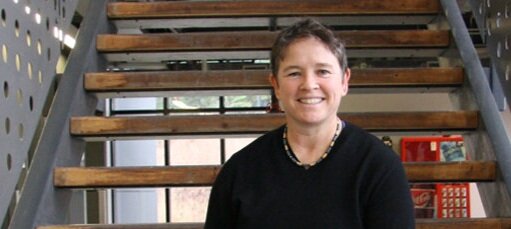
Lauren Sergio
KINESIOLOGY & HEALTH SCIENCE
APPROXIMATELY 200,000 CANADIANS are diagnosed with a concussion each year, yet most research explores how they affect young male athletes. Neuroscientist Lauren Sergio of the School of Kinesiology & Health Science wants to expand concussion research to reflect the impacts on an overlooked demographic, one that comprises the majority of our population: adults ages 18 to 65.
“Unlike athletes, working-age adults trying to recover from concussions have responsibilities they can’t abandon— employment, kids, housework—and yet, there is quite a gap in the literature on this population,” says Sergio, the York Research Chair in Brain Health and Skilled Performance.
Another missing piece of this research puzzle, Sergio says, is an understanding of how sex-related differences affect our cognitive-motor integration (CMI), meaning our ability to think and move simultaneously, an essential skill for daily living. This is the enduring legacy of medical science literature being historically rooted in research on male physiology. However, we do know that the brain networks for CMI vary for males and females—Sergio is the first researcher to have demonstrated these differences.
Now, Sergio is examining the sex-related differences in the dynamics of concussion healing in a five-year study that this past spring received $401,625 in funding from
Institutes of Health Research. She is partnering with two other York Kinesiology & Health Science professors, and a University of Toronto psychology professor specializing in multisensory and aging, to conduct an interdisciplinary investigation that will include integrated sensory, motor and cognitive behavioural assessments as well as neurophysiological and hormonal measurements of participants.
The work will unfold partly at York’s full-service MRI facility, and partly at Toronto Rehab’s Challenging Environment Assessment Laboratory, an advanced simulation facility for testing mobility in functions such as driving or climbing stairs. Among the innovative modalities being used is virtual reality technology that engages participants in performing functions such as walking and grocery shopping.
Sergio hopes to generate evidence that can help kinesiologists, physiotherapists, neurologists and other rehabilitation professionals better tailor their treatment regimens for patients affected by concussions.
Says Sergio: “Working-age people, and especially women, are being underserved by the science, and clinicians wish they knew more, so it’s important to get this knowledge out there.”
